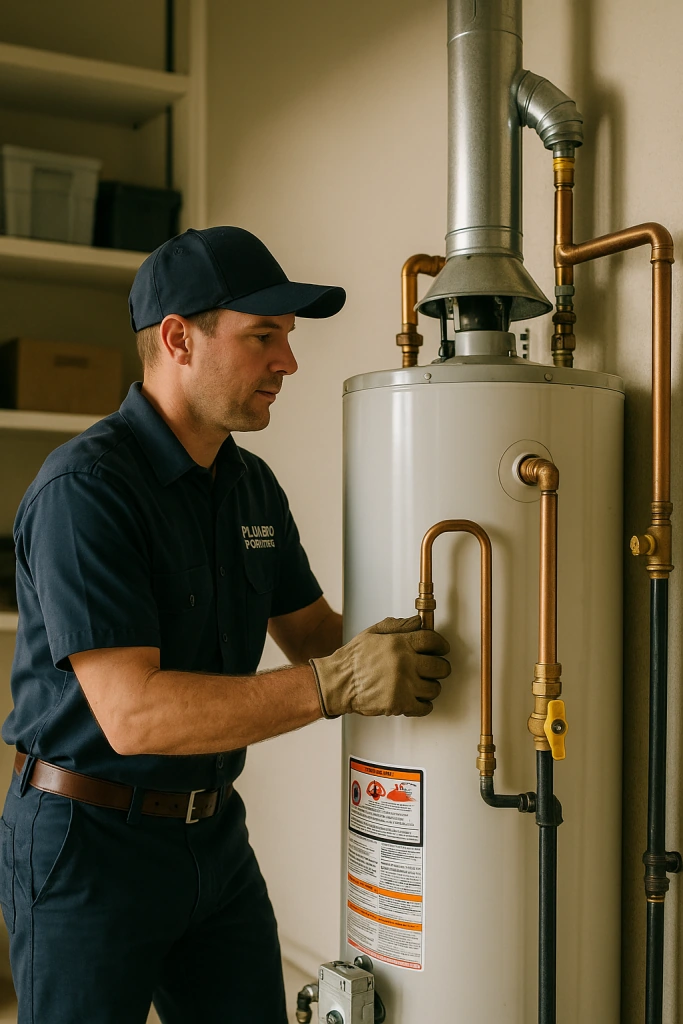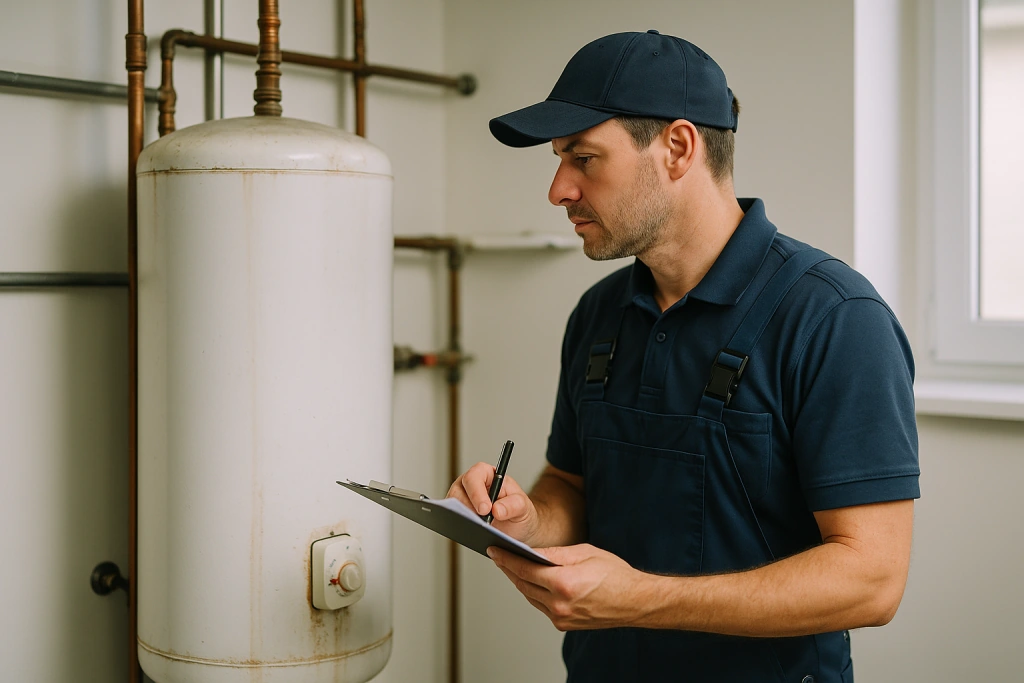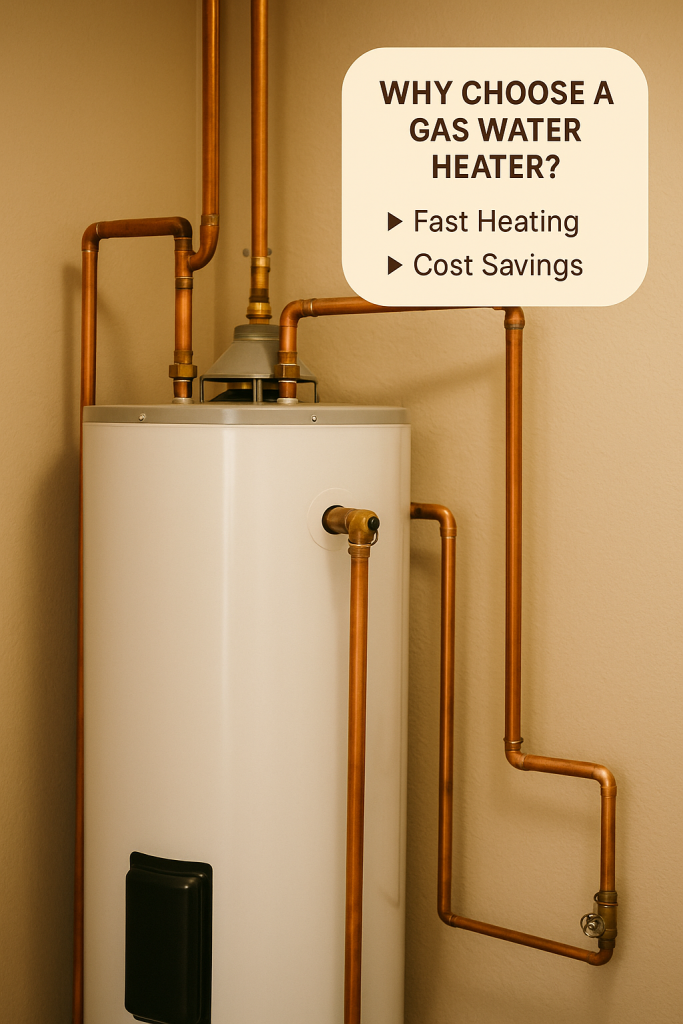
Gas water heaters are a popular choice for homeowners seeking efficient, reliable, and cost-effective hot water solutions. These systems utilize natural gas or propane to heat water, offering several advantages over electric models, including faster heating times and lower energy costs. Understanding how gas water heaters work, their benefits, installation requirements, and maintenance needs is essential for anyone considering upgrading or replacing their home’s water heating system. In this article, we will provide a detailed overview of gas water heaters, helping you make an informed decision for your household.
Why Choose a Gas Water Heater?
Cost-Effective Operation
One of the primary reasons homeowners opt for gas water heaters is their cost-effectiveness. Natural gas is generally less expensive than electricity, which means lower monthly utility bills. Furthermore, gas water heaters heat water more quickly than electric models, ensuring that your household has hot water available almost instantly. For families with high water usage, such as multiple showers running in the morning or simultaneous dishwasher and laundry loads, the efficiency of gas heaters can significantly reduce waiting times and energy consumption.
Reliable Performance During Power Outages
Gas water heaters do not rely entirely on electricity to operate. While some models may require a small amount of electricity for ignition, many can function independently during power outages. This reliability is particularly valuable in areas prone to storms or electrical disruptions. Unlike electric water heaters, which become completely inoperative without power, gas systems can continue supplying hot water, providing comfort and convenience in emergencies.
Long-Term Durability
Gas water heaters are known for their durability. With proper installation and routine maintenance, these systems can last 10–15 years or even longer. A high-quality gas water heater can serve as a long-term investment, reducing the frequency of replacements and associated costs. Homeowners who adhere to maintenance schedules such as flushing the tank, inspecting the anode rod, and cleaning the burner ensure their system operates efficiently and safely over the years.

Installation Considerations
Proper installation is crucial for the safe and efficient operation of your gas water heater. Here are key factors to consider:
- Sizing: Selecting the correct tank size is essential. A 40–50 gallon water heater is typically sufficient for a family of four, while larger households may require 50–75 gallon models to meet peak demand.
- Ventilation: Gas water heaters produce combustion gases, which must be properly vented outside to prevent dangerous buildup. Modern systems use either traditional vent pipes or direct vent technology for safety.
- Location: Install the heater in a well-ventilated, accessible area to facilitate maintenance and reduce the risk of gas leaks. Basements, garages, and utility rooms are common locations.
- Professional Installation: Gas water heaters require connection to the gas line and proper venting. Hiring a licensed professional ensures the installation complies with local building codes and safety standards, minimizing potential risks.
Maintenance Tips for Longevity
Routine maintenance enhances the lifespan of a gas water heater and maintains peak performance. Consider these steps:
- Annual Flushing: Sediment accumulation at the bottom of the tank can reduce efficiency and damage components. Flushing the tank annually keeps it clean.
- Check the Anode Rod: The anode rod prevents corrosion inside the tank. Inspect it every 1–2 years and replace it as needed to extend tank life.
- Inspect the Burner: Ensure the burner is clean and functioning properly. Regular cleaning prevents incomplete combustion and maintains efficient heating.
- Test the Temperature and Pressure Relief Valve: This critical safety feature should be tested annually to avoid dangerous pressure buildup.
- Professional Inspection: A licensed plumber can identify minor issues before they become major problems. Scheduling a checkup every 2–3 years ensures continued safety and efficiency.

Pros and Cons of Gas Water Heaters
Pros
- Lower operating costs due to affordable natural gas.
- Faster heating times, reducing waiting periods.
- Operation during power outages for uninterrupted hot water supply.
- Long lifespan when properly maintained.
Cons
- Higher initial installation cost because of venting and gas line requirements.
- Requires regular maintenance to prevent damage and ensure efficiency.
- Larger space needed compared to some electric tankless units.
Energy Efficiency and Modern Gas Water Heaters
Modern gas water heaters offer improved energy efficiency through better insulation, condensing technology, and electronic ignition systems. Condensing gas water heaters, for example, capture extra heat from exhaust gases, reducing wasted energy. Some units also include smart controls that allow homeowners to monitor energy usage and adjust water temperature remotely, further saving on energy bills.
Conclusion
Gas water heaters provide numerous advantages, including cost savings, rapid heating, durability, and independence from electricity during outages. By considering proper installation, performing routine maintenance, and choosing the right size for your household, you can enjoy a reliable and efficient hot water supply for years to come. Homeowners in Santa Cruz County and surrounding areas can rely on professional services like Anytime Plumbing for expert installation, repair, or replacement of gas water heaters, ensuring safety and performance every step of the way.
